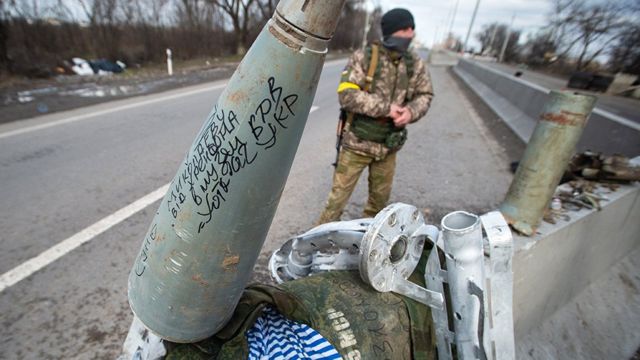Against the objections of rights advocates who have been making a case for a ban on the weapons, which they say endanger civilians, the United States has finally authorised the transfer of cluster munitions to Ukraine.
The administration of President Joe Biden confirmed the move on Friday, arguing that US-made cluster bombs are safer than the ones Russia is already using in the conflict. The transfer comes as Ukraine pushes on with a counteroffensive against Russian troops in the east of the country.
“We recognise that cluster munitions create a risk of civilian harm from unexploded ordnance,” US national security adviser Jake Sullivan told reporters.
“This is why we’ve deferred the decision for as long as we could. But there is also a massive risk of civilian harm if Russian troops and tanks roll over Ukrainian positions and take more Ukrainian territory and subjugate more Ukrainian civilians.”
Sullivan added that cluster munitions would serve as a “bridge” to supplement conventional artillery as the US ramps up production of regular bombs and shells for Ukraine.
Biden later told CNN that it was a “very difficult decision” on his part, adding that the “Ukrainians are running out of ammunition”.
The weapons are part of a tranche of US military assistance to Ukraine that also includes armoured vehicles and anti-armour weapons, the Pentagon announced.
Rights advocates slammed the Biden administration’s decision, highlighting their threat to Ukrainian civilians.
Sarah Yager, the Washington director at Human Rights Watch, called the US move “devastating”.
“They are absolutely awful for civilians.” Yager told Al Jazeera in a television interview. “I think when legislators and policymakers here in the United States see the photos coming back of children with missing limbs, parents injured, killed by our own American cluster munitions, there’s going to be a real awakening to the humanitarian disaster that this is.”
Each cluster bomb can contain hundreds of smaller explosives that spread across a targeted area, but not all of these bomblets detonate on impact. The unexploded bombs, known as duds, can remain embedded in the ground for years, posing a serious danger to civilians, most notably children.
While cluster munitions are not banned internationally, more than 120 countries – including most NATO members – have signed on to a convention prohibiting their use. The US, Ukraine and Russia are not party to that agreement.
On Friday, Farhan Haq, a spokesperson for United Nations Secretary-General Antonio Guterres, reiterated the UN chief’s support for the Convention on Cluster Munitions.
